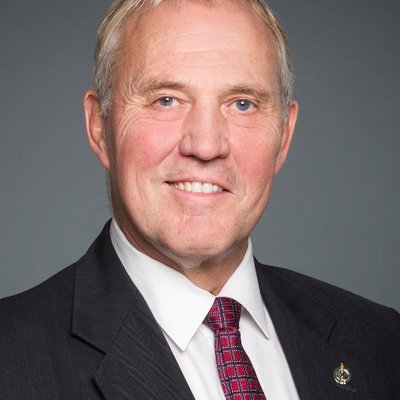Canada News
Ottawa proposing legal weed tax of at least $1 per gram, plus GST/HST

Liberal MP Bill Blair, former Toronto police chief and the Trudeau government’s point man on legalizing marijuana, made public Friday the federal tax proposal for legal pot, kicking off a period of public consultations that ends Dec. 7. (Photo: Bill Blair/Twitter)
Ottawa and the provinces and territories could have another $1 billion a year in tax revenues to split after pot becomes legal next year.
Liberal MP Bill Blair, former Toronto police chief and the Trudeau government’s point man on legalizing marijuana, made public Friday the federal tax proposal for legal pot, kicking off a period of public consultations that ends Dec. 7.
That, Blair said, gives the government just enough time to solicit comments on the proposal so that federal, provincial and territorial finance ministers can discuss it when they meet in Ottawa Dec. 10-11.
The plan would add an excise tax of $1 per gram of marijuana or 10 per cent of the final retail price, whichever is higher, with the revenues to be divided equally between Ottawa and the provinces and territories.
Federal and provincial sales taxes would be applied on top of the excise tax, with the final price tag varying across the country because provinces have different sales taxes.
On an $8 gram of pot sold in Ontario, for instance, the final purchase price would be $10.17, with a $1 excise tax and $1.17 HST. In New Brunswick, it would be $10.35.
Alberta, which has no provincial sales tax, could see the cheapest pot in the country at just $9.45 for an $8 gram of weed.
“I’m very comfortable that the level of taxation that has been determined as appropriate in this case achieves our goals of keeping the price sufficiently low to be competitive with an illicit market, while at the same time not creating an incentive for the consumption and purchase of this drug,” said Blair.
Blair gave $1 billion a year as a very rough estimate of how much governments stand to raise from the plan, although that number is at the high end of the scale, he warned, since so much depends on just how many people will end up buying marijuana once it becomes legal.
“The market is currently controlled almost 100 per cent by criminals,” Blair said. “It’s an illicit market. Quite frankly, they don’t share a lot of data on the size of their market, so right now we’re operating on estimates.”
All of this assumes every province signs the federal marijuana framework. People who live in provinces that don’t sign the framework will still be able to buy legal pot, with a federal excise tax of 50 cents a gram or 5 per cent of the purchase price and GST, plus whatever tax their provincial government chooses to apply. That could be nothing, or it could be higher than the 50 cents or five per cent share provinces will get under the federal plan.
Provinces didn’t immediately seem eager to fall into Ottawa’s pot line.
Ontario Finance Minister Charles Sousa said a 50-50 split of revenues is “not reasonable or sufficient” because provinces bear incremental costs bigger than Ottawa’s for enforcement, justice, road safety and public education. Manitoba Premier Brian Pallister said Ottawa wants to split the tax revenues but not the costs of legalizing pot.
British Columbia Finance Minister Carole James echoed Ontario’s sentiments about the split and intends to talk to her provincial counterparts about the matter.
“To look at a 50-50 split when we’re taking more of the share of responsibility here in B.C. just isn’t fair and certainly isn’t going to work for our province,” said James.
Rosalie Wyonch, a policy analyst with the C.D. Howe Institute said the plan is reasonable and, with current market prices for pot taken into account, will result in a price tag that is competitive with black market street dealers.
She warned provinces considering a tax program higher than the Ottawa proposal that it could likely push the price of legal weed above street prices which would eat into provincial revenues and push enforcement costs up at the same time.
Wyonch said Canadian producers are better prepared for legal pot than those in the U.S. were when it was legalized in some states, so the initial spike in prices due to a shortage of product isn’t expected here.
Bruce Linton, CEO of cannabis producer and distributor Canopy Growth, said the tax plan is in line with what was expected and he is okay with it.
“We’d be screaming you know if the tax was too high,” he said. “There’d be no basis upon which I would be nice.”
Linton said from his perspective Health Canada has managed the recreational pot file deftly.
Under the federal proposal, taxes would be levied on both fresh and dried marijuana, pot-infused oils and seeds and seedlings used for home cultivation. Revenues would be used for public education, research, enforcement and other activities around the regulation and administration of legal pot.
Sales and excise taxes would also be applied to medical marijuana, on which only HST is currently levied. That’s because the government doesn’t want to create incentives for people to seek out medical pot just because it’s cheaper, Blair said.





















